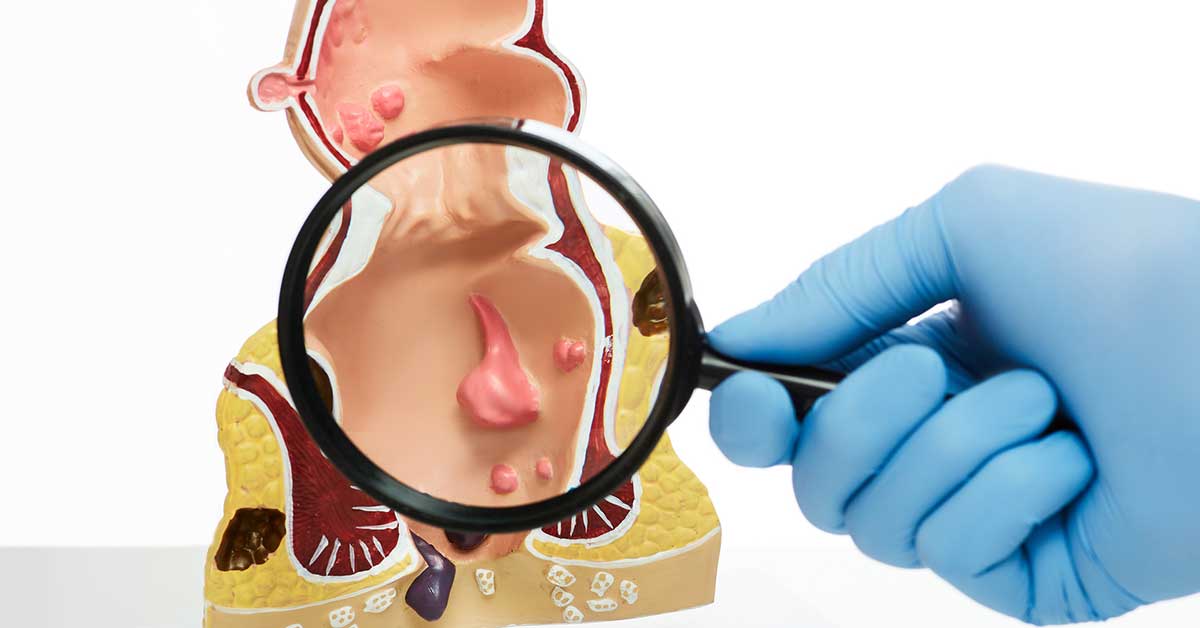Anal Cancer
Contact Us
What is anal cancer?
Anal cancer is a rare form of cancer that occurs when cells in the anus begin to grow out of control. The anus is the opening at the lower end of the intestines where stool, or feces, passes out of the body as a bowel movement. There are different types of cells inside the anal canal. Most anal cancers start from cells in the inner lining of the anal canal, known as the mucosa. In the United States, most (nearly 9 out of 10 cases) anal cancers are squamous cell cancer. These tumors start in the squamous cells that line the surface of the anal canal and have grown into the deeper layers of the lining. Other types of anal cancers begin in different types of cells located in the anus.
Back to Top
What are the signs and symptoms of anal cancer?
Some anal cancers may go undetected until they have become more advanced. Bleeding is often the first sign of anal cancer. Because the bleeding is usually minor, people may assume it is caused by hemorrhoids, a fairly common cause of rectal bleeding. However, it is important to contact your doctor if you experience bleeding from the rectum or any of the following symptoms on a persistent basis:
- Itching in or around the rectum
- A lump or mass at the anal opening
- Pain or a feeling of fullness in the anal area
- Changes in bowel movements, such as narrowing of stool or loss of bowel control
- Abnormal discharge from the anus
- Swollen lymph nodes in the anal or groin areas
How is anal cancer diagnosed?
Diagnosing anal cancer begins with a physical examination so that your doctor can evaluate the symptoms you are experiencing. Additional information to confirm a diagnosis and how advanced the disease is can be obtained through:
- Digital rectal examination of the anus and rectum to check for abnormalities
- Anoscopy to view the anus, using a thin, lighted, flexible tube
- Biopsy, in which a tissue sample is taken and reviewed by a pathologist
- Imaging tests, such as computed tomography (CT) scans or positron emissions tomography (PET) scans, which help to identify a mass or lump and detect cancer.
What causes anal cancer?
Although the exact causes of anal cancer are not well known, there appears to be a link to human papilloma virus (HPV), a sexually-transmitted virus. While the vast majority of people with HPV infection do not develop anal cancer, researchers have found evidence that HPV does cause many anal squamous cell cancers. Research is ongoing to learn more about how HPV and other viruses, including HIV, that weaken the body’s immune system, might cause anal cancer. Having anal sex or sex with multiple partners can also increase risk. Smoking and exposure to cancer-causing chemicals in tobacco have also been linked to an increased rate of anal cancer.
Back to Top
Is anal cancer genetic?
A small percentage of anal cancers may be due to specific changes in the genes that are passed from parent to child. Talk with your doctor for more information.
Back to Top
Is anal cancer curable?
Treatment for anal cancer is often highly effective, especially at early stages. However, anal cancer can be a serious condition. Outcomes vary depending on the type and stage of the disease when it is diagnosed.
Back to Top
How is anal cancer treated at FCS?
Each patient and each cancer are unique. At FCS, physicians develop a personalized treatment plan in partnership with patients, and based upon the type and stage of the cancer and whether it has spread to other parts of the body. The most common and effective treatments for anal cancer include surgery to remove the cancer and radiation and chemotherapy to kill cancer cells. Radiation and chemotherapy are often used in combination to treat anal cancers, resulting in positive long-term survival rates. At FCS, through our extensive clinical trials research program, we offer our patients access to the most advanced treatment options available. FCS is at the forefront of developing novel therapies that are proving effective and considered best-in-class treatment for many forms of cancer.
Back to Top
What are common risk factors for anal cancer?
Anal cancer is found mainly in older adults, with an average age at diagnosis being in the early 60s. It is also more common in White women and Black men. Although the exact causes of anal cancer are not well known, there appears to be a link to human papilloma virus (HPV), a sexually-transmitted virus. While the vast majority of people with HPV infection do not develop anal cancer, researchers have found evidence that HPV does cause many anal squamous cell cancers. Research is ongoing to learn more about how HPV and other viruses, including HIV, that weaken the body’s immune system, might cause anal cancer. Having anal sex or sex with multiple partners can also increase risk. Smoking and exposure to cancer-causing chemicals in tobacco have also been linked to an increased rate of anal cancer.
Back to Top
Is there a screening test for anal cancer?
There are no official guidelines for routine anal cancer screening. However, a digital rectal exam and anal Pap smear are recommended for those who are considered at elevated risk.
Back to Top
Can a colonoscopy detect anal cancer?
A colonoscopy can help detect abnormalities in the anus. However, a colonoscopy is not used to detect anal cancer.
Back to Top
What does anal cancer feel like?
Symptoms of anal cancer can include severe itching or pain or the sensation of a lump around the anus.
Back to Top
How fast does anal cancer grow?
Anal cancers tend to be slow growing. They can spread, however, most often to the lungs and liver.
Back to Top




